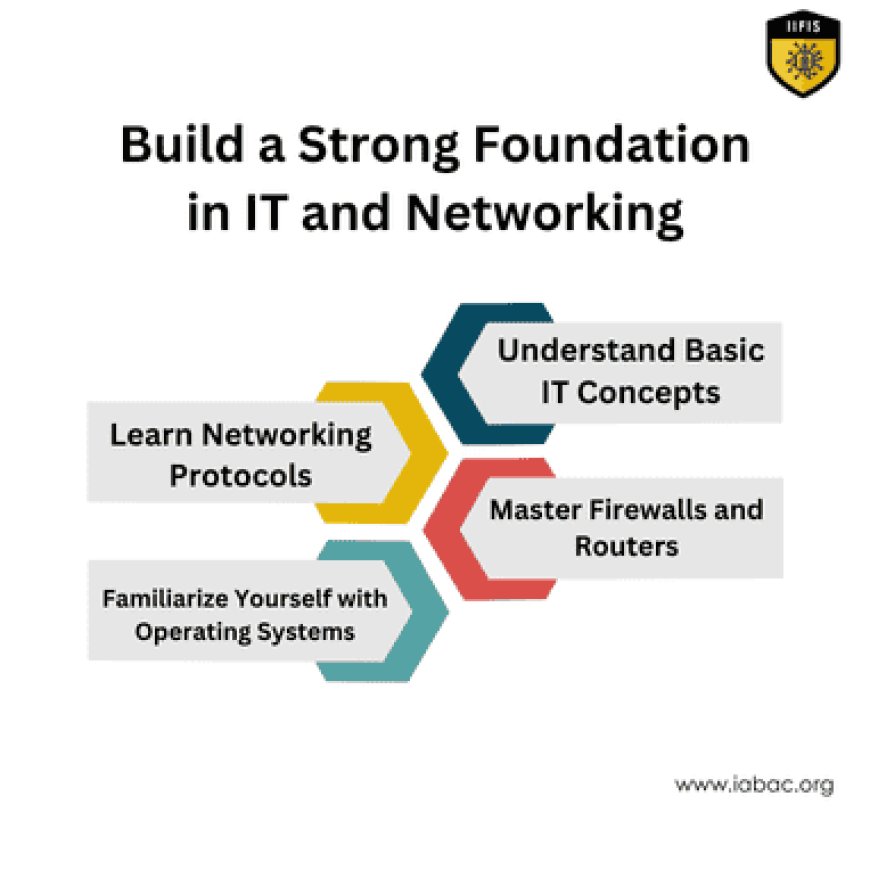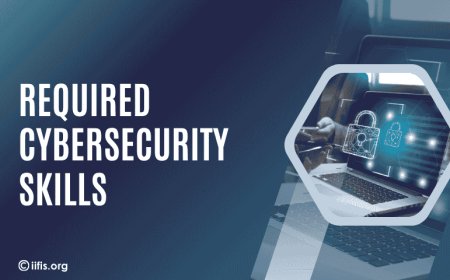How to become a cybersecurity expert
Discover the essential steps to becoming a cybersecurity expert. Learn about the key skills, certifications, and career paths to excel in the field of cybersecurity. Start your journey today with expert tips and resources.

The demand for cybersecurity experts has never been higher. As cyber threats continue to evolve, organizations of all sizes are seeking skilled professionals to protect their sensitive data and systems. Becoming a cybersecurity expert requires a strong foundation in IT and networking, proficiency in security tools, and a deep understanding of cyber threats and weaknesses. In addition to technical skills, staying updated with the latest industry trends, certifications, and hands-on experience is crucial to mastering the field and excelling in a cybersecurity career.
What is Cybersecurity?
Cybersecurity protects systems, networks, and data from digital attacks, unauthorised access, and damage. It involves the use of technologies, processes, and controls to safeguard sensitive information, ensure the confidentiality, integrity, and availability of data, and prevent cyber threats such as hacking, malware, ransomware, and phishing. Cybersecurity spans various domains, including information security, network security, application security, and operational security, and is essential for both organizations and individuals to defend against evolving cyber risks.
The growing demand for cybersecurity experts is based on the increasing frequency and competence of cyberattacks, as well as the expanding digital world. With more organizations and industries moving online, the risk of data violations, ransomware attacks, and other cyber threats has surged. This has created a pressing need for skilled professionals who can protect sensitive information, secure networks, and ensure compliance with regulatory requirements.
Key factors contributing to the growing demand include:
-
Rise in Cybercrime: Cyberattacks are becoming more complex, targeting critical infrastructure, financial systems, and personal data.
-
Digital Transformation: As businesses adopt cloud computing, IoT devices, and remote work models, the attack surface expands, necessitating strong cybersecurity measures.
-
Regulatory Compliance: Governments are enacting stricter data protection laws, such as GDPR and CCPA, requiring organizations to enhance their cybersecurity practices.
-
Shortage of Talent: The cybersecurity workforce gap means there aren’t enough qualified professionals to fill the growing number of job openings.
This demand spans across sectors like finance, healthcare, government, and tech, offering lucrative career opportunities for those pursuing cybersecurity training and certifications.
Build a Strong Foundation in IT and Networking
To succeed in cybersecurity, building a strong foundation in IT and networking is essential. Here are the key steps:

-
Understand Basic IT Concepts: Grasp the fundamentals of computer systems, including hardware, software, and data storage. Knowing how systems operate will help you understand how to secure them.
-
Learn Networking Protocols: Networking is the backbone of communication in the digital world. Learn about key protocols such as TCP/IP, DNS, HTTP, and more, which will help you detect and prevent network-based attacks.
-
Familiarize Yourself with Operating Systems: Understanding the inner workings of operating systems like Windows, Linux, and macOS is crucial. Each system has unique vulnerabilities that you’ll need to secure.
-
Master Firewalls and Routers: These are the first lines of defense in a network. Learn how firewalls block unwanted traffic and how routers facilitate secure communication between networks.
These skills will provide the technical knowledge needed to start solving real-world cybersecurity challenges.
Gain Proficiency in Security Tools and Technologies
-
Master Security Tools:
-
SIEM Systems: Learn to use SIEM for threat detection and response.
-
IDS/IPS: Understand IDS and IPS for monitoring and preventing unauthorized access.
-
Firewalls: Get skilled in configuring firewalls to control network traffic.
-
Antivirus Software: Know how to use antivirus tools to protect against malware.
-
Encryption and Data Protection:
-
Encryption: Learn encryption methods to protect data.
-
Data Protection: Familiarize yourself with technologies like Data Loss Prevention (DLP).
Deepen Knowledge of Cyber Threats and Vulnerabilities
-
Common Attack Vectors:
-
Phishing: Recognize phishing schemes.
-
Malware: Understand different types of malware.
-
DDoS: Study Distributed Denial of Service attacks.
-
Vulnerability Management:
-
Assessment: Learn to identify system vulnerabilities.
-
Mitigation: Develop strategies to address and fix weaknesses.
Earn Relevant Certifications
-
Explore Certifications:
-
Certified Ethical Hacker (CEH)
-
CompTIA Security+
-
Career Benefits: Certifications enhance your skills, validate your expertise, and boost career prospects in cybersecurity.
Stay Updated with Industry Trends and Best Practices
-
Continuous Learning: Regularly update your knowledge to stay ahead of evolving threats.
-
Engagement:
-
Follow cybersecurity news.
-
Attend workshops.
-
Join professional networks.
Staying informed and connected is crucial for ongoing success in the field.
Gain Hands-On Experience
-
Participate in:
-
Internships: Gain practical experience in real-world settings.
-
Cybersecurity Challenges: Engage in competitions and simulations to test your skills.
-
Bug Bounty Programs: Contribute to identifying and fixing vulnerabilities in systems.
-
Build a Portfolio: Showcase your problem-solving abilities and hands-on projects to demonstrate your expertise.
To become a cybersecurity expert, start by building a strong foundation in IT and networking, mastering essential security tools and technologies, and understanding common cyber threats and vulnerabilities. Pursue relevant certifications to validate your skills and stay current with industry trends through continuous learning and professional engagement. Dedication to these steps, along with ongoing education and proactive involvement, is crucial for success in this dynamic field. Consider exploring opportunities with organizations like IIFIS, which offer specialized training and resources to further your cybersecurity career.
























